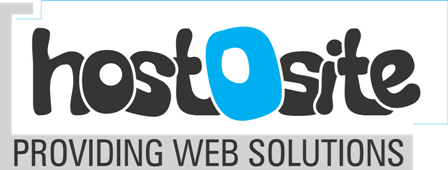A Content Management System (CMS) is worth investing in for every business, especially those with SEO optimization features. It’s the savior for writers and digital marketers who aren’t tech-savvy.
64% of marketers value SEO as a vital factor for growing their organic presence and boosting their marketing strategy. That’s why top-tier CMS platforms allow you to customize your website presence to let search engines crawl faster.
Not stopping there, CMS with SEO optimization also makes the process of making content more worthwhile. For example, a CMS can help you create content out of complex topics like blockchain or cryptocurrencies by generating keyword recommendations.
With many options on the market, choosing CMS with SEO optimization can be overwhelming. We understand the struggle! So, we’ve compiled some tips on choosing the best CMS for SEO, plus some recommendations!
What is CMS?
A Content Management System (CMS) is a tool or platform that helps users manage and publish digital content, typically blogs or websites. A CMS comes in handy for those without advanced technical knowledge.
The ease of use is not the only factor to consider when choosing the best CMS for your business. Those who want to boost traffic and improve a website’s rank on Google must choose CMS with SEO optimization features.
CMS Features for SEO Optimization
Some CMS platforms offer features for SEO optimization. Before picking one, you should know what features are obligatory to maximize a website’s SEO. A good CMS should be able to customize some points below.
Meta Description and Title Tags
Meta descriptions are vital to your website, so ensure your CMS lets you customize it. Not stopping there, your CMS should allow you to manage other page elements, such as header tags and page titles.
Commonly, a CMS has a certain word limit for title and meta description. Choose those who allow you to write 60 characters for page titles and 160 characters for meta descriptions. You don’t have to count them because your CMS will.
With the ability to customize a page’s title and meta description, you can easily put keywords in strategic spots that you wish. In return, search engines can crawl your page faster, leading to higher rank and traffic.
URL Settings
Short and clear URLs leave a better impression on visitors. So, avoid having lengthy and complicated URLs that are hard to remember.
Keep your URL simple and descriptive by including your keywords in it. Having keywords on your URL will make your SEO more robust. Therefore, make sure your CMS allows you to have this setting.
Website Navigations
Your website should have clear navigations that are intuitive for visitors. It’s vital to use CMS that lets you manage your website navigations.
You can organize pages on your site accordingly based on certain categorizations. This way, search engines will crawl your website easier and faster. Most importantly, you’ll give a pleasant experience for the visitors.
Image Alt Tags
For a CMS to have image alt tags is necessary. Alt tags give textual context to an image that’s on display. It intends to inform search engine crawlers and allow them to index an image properly.
Moreover, adding images to alt tags, like product photos, can positively impact a website’s ranking on search engines.
Mobile Optimization
Most internet users use their smartphones to browse and surf the internet. That’s why you should optimize your website for mobile use. Like adding micro-interactions on your site. Moreover, mobile-first indexing has been running smoothly, so you have no excuse not to do it.
Make sure your website won’t load heavily, as it can affect users’ experience. Some CMS have features to help you establish mobile optimization for your website.
Analytic Tools
As you work on your SEO, you must monitor your website performance. Some CMS have excellent features to help you see essential metrics, such as organic traffic, leads, keyword performance, inbound links, and indexed pages.
Therefore, choosing a CMS with a customizable dashboard to monitor those metrics is necessary. In addition, you can easily evaluate your strategy and spot any gaps or problems to develop a more robust plan in the future.
Best CMS for SEO
If you need some recommendations for the best CMS with SEO optimization, we got your back! We’ve picked some CMS platforms that are known all over the internet and have received good user reviews. Let’s check them out!
WordPress
The majority of all websites in cyberspace use WordPress.org as their CMS. As one of the major CMS platforms, WordPress has an easy interface and allows users to create an SEO-friendly site using its features.

WordPress enables you to customize meta descriptions, headings, add titles, image alt-tags, and custom URLs in your post. It also allows you to manage permalink settings and create navigation menus using categories and tags.
CMSHub
CMSHub is another option for CMS with excellent features for SEO. It provides keyword recommendations, including long-tailed keywords as you write, which is such a great help for writers.
The platform also has an Optimize tab that shows some SEO practices you’ve successfully followed. It’s an all-in-one CMS with analytics, blogging tools, built-in SSL certifications, and other SEO-related features. With compelling tools, CMSHub is one of the best CMS for enterprises of all scales.
Magento
Magento is a perfect CMS platform for online store owners. It has a similar interface to WordPress that includes standard SEO features. You can also have more parts by downloading extensions.
The platform enables you to create descriptive meta descriptions for product pages. Moreover, it permits you to set up canonical URLs to avoid content cannibalism within your website. Magento also has an extensive integration marketplace.
Joomla
Joomla is the second most favored CMS platform after WordPress. To some extent, Joomla has a more robust feature compared to WordPress, making it more suitable for large business and eCommerce websites.
Joomla’s content and site management are more varied, with more functionalities than WordPress. The CMS has a diverse extension library to let SEO tweaks with minimal editing. Lastly, Joomla is one of the fastest CMS in the industry.
The Wrap Up
In the age of digital marketing, having a robust SEO strategy is key to success. While working on SEO can take a lifetime, CMS can come in handy for every modern marketer and writer to thrive in the global competition.
Choosing CMS with SEO optimization is necessary to make your website visible in cyberspace. It helps you cut time and effort to adjust SEO on your content. Hence, the above points can be a quick guide for choosing CMS with SEO optimization for your business.


Recent Comments